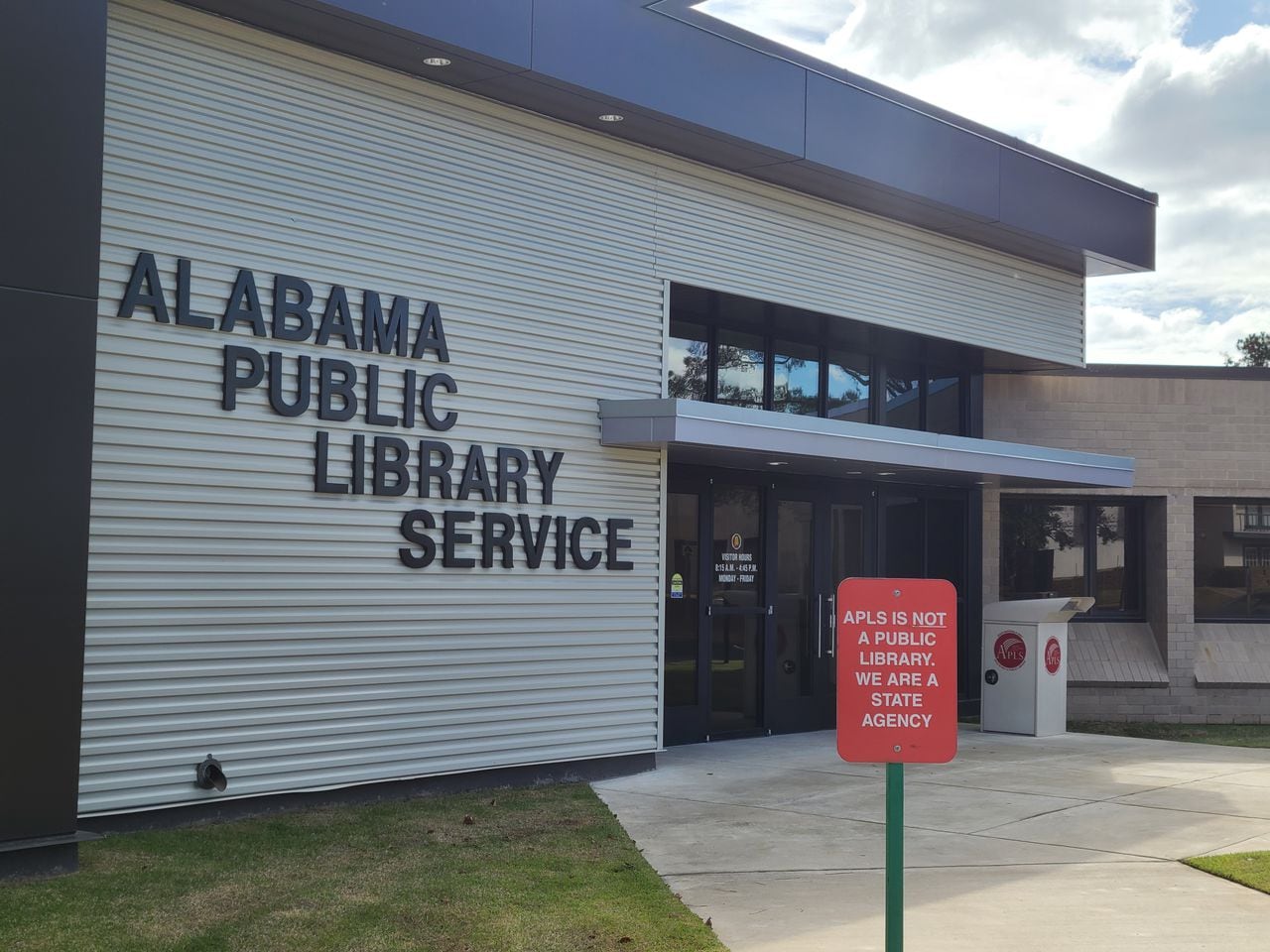Alabama public library agency quits American Library Association
The Alabama Public Library Service executive board voted to leave the American Library Association at Tuesday’s executive board meeting.
In front of about 40 people in attendance, three members of the library service board voted to leave the library association immediately instead of in March when the service’s membership expires. The national organization offers grants and training to libraries around the country; since 2021, it has provided $293,200 in grants to 36 Alabama libraries.
Alabama is one of several states to recently leave the ALA, citing complaints with training, material and how the organization handles sexually explicit content.
Hannah Rees, the founder of Clean Up Alabama, which has been leading book challenges in state libraries, agreed with the decision to disaffiliate — but also said Tuesday that she wants the state to go further and sever all ties.
“That includes financial, training, advocacy, programming, certifications, all the above, not just not renewing our membership,” Rees said.
Board member Angelia Stokes moved to leave the ALA due to the “controversy” surrounding libraries since ALA president Emily Drabinski Tweeted about being a “Marxist lesbian.” APLS director Nancy Pack wrote a letter to Drabinski describing how her Tweet caused a lot of turmoil in Alabama libraries.
Drabinski’s term as president ends in April. Stokes said the APLS could rejoin in the future.
Three of the five current members of the board voted on the issue. John Wahl, who also serves as the president of the state GOP, and Jerria Martin were not present.
Matthew Layne, president of the Alabama affiliate of the American Library Association, said he was disappointed in the decision. However, this won’t sever the relationship between the Alabama association and the APLS and doesn’t negate individual library or librarian memberships.
“I think that it’s unfortunate that the board has been pressured into withdrawing from an organization that benefits Alabama libraries over some remarks by a president who’s going to be gone by spring,” said Angie Hayden, co-founder of the library advocacy group Read Freely Alabama. “In a state where library funding is already difficult to come by, every little bit counts. It’s truly unfortunate that they let politics and optics harm our libraries.”
Rep. Susan DuBose (R-Shelby County) was one of four people to speak during the public comment portion of the meeting. She said Ivey’s recommendations to “make libraries more conducive to parent and child-friendly environments” are sensible and reasonable, and said that if the library service doesn’t approve policy changes, state funding may be at risk.
“The code changes that need to be added include a policy for physical location and relocation of sexually explicit or other material deemed inappropriate for children and youth,” DuBose said. “Exercising discretion in the location of sexually explicit material or other material deemed by the public library board to be inappropriate for children or youth does not constitute a denial of service on the basis of age.”
Later in the meeting, Pack told DuBose that the Legislative Reference Service determines how and when administrative code changes are made, including a set period for public comments. She said it’s a “very serious and involved process.”
Hayden also spoke during the public comment part of the board meeting.
She said she’s alarmed by what she called a “blacklist” of books collected by the state, which contained books on Amish romance novels, divorce, and the Left Behind Series.
“All of this with an estimated price tag of potentially tens of thousands of taxpayer dollars, making this very expensive experiment to prove that parents have very subjective opinions when it comes to what is appropriate material for their own children,” Hayden said. “Not only are we troubled by this move toward authoritarian governance, we are incredibly concerned by the absence of forethought and good stewardship.”
Hayden said all of the books on the list belong in the library because even religious minority groups “deserve representation in a taxpayer-funded public forum.”
“How will Alabama raise its profile nationally, politically and culturally if we continue to present this ignorant image to the rest of the country that we accept extremism and discrimination of Americans and are willing to censor libraries to achieve that? Alabama will become a bellwether for government overreach and censorship if we continue down this path. And it’s not a winning strategy.”
The library service surveyed Alabama libraries on Jan. 8 to assess complaints about books.
Out of 95 respondents, eight reported receiving complaints about 121 individual books. “I think that shows most libraries do not consider this to be a problem to the extent we sometimes hear,” board president Ronald Snider said.
The libraries that responded with a number of books challenged since April 1, 2023, were:
- Autauga-Prattville Public Library (48)
- Gadsden-Etowah County Public Library (30)
- Dothan Houston County Library (24)
- Mobile Public Library (6)
- Lexington Public Library (Lauderdale County) (6)
- Scottsboro Public Library (Jackson County) (4)
- Ozark Public Library (Dale County) (2)
- North Shelby Library (1)
The board also recognized former vice chair Virginia Doyle as a “passionate advocate for librarians.” Ivey removed Doyle from the board after Doyle criticized tying state funding to Ivey’s recommended code changes.
Layne spoke in front of the board to recognize Doyle for her “passionate defense of funding for libraries” at the November board meeting.
“I was shocked, however, when three days later, she was capriciously removed from this council by the governor’s office,” Layne said. If we cannot engage in honest and open dialogue with one another about difficult concepts and ideas, are we truly Americans? Are we truly Alabamians? I expect more. We, as citizens of this great state, deserve better. When we silence another’s voice, either in this room or out in the world, we only diminish ourselves.”
The next meeting is scheduled for 10 a.m. on March 21.
